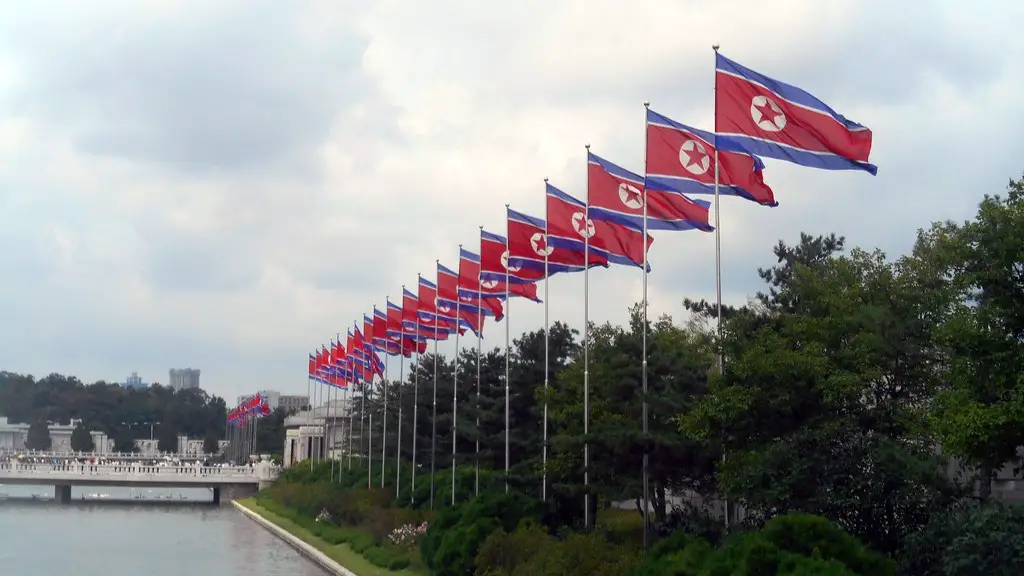Background Information
North Korea and South Korea have a long history of tensions between the two countries. The Korean War took place from 1950 to 1953 and led to the division of the two countries. Since then, the two nations have been in a state of conflict and distrust. North Korea has made numerous threats and provocations against South Korea, including attacking vessels.
Relevant Data and Perspectives from Experts
Experts have different theories as to why North Korea has been attacking South Korea. One theory is that North Korea sees South Korea as a threat to their regime, as South Korea is a more prosperous and democratic nation, in contrast to North Korea’s authoritarian regime. South Korea is also a key ally of the United States, which has been at odds with North Korea for decades.
Some experts have argued that North Korea is attempting to gain leverage in negotiations with the United States and South Korea by engaging in provocative behavior. They argue that North Korea engages in these activities as a way to pressure the United States and South Korea into concessions on the issues that North Korea cares about.
Own Insights and Analysis
It is clear that North Korea has been attacking South Korea as a way to gain leverage in negotiations with the United States and South Korea. This behavior has been escalating in recent years, as North Korea has become increasingly isolated and desperate for any kind of concessions. It is also possible that North Korea is using these attacks as a way to try to unify the two countries under their rule, but this does not seem to be the primary motivation for their actions. Whatever their reasons, it is clear that North Korea’s provocations are a direct threat to peace and stability in the region.
Insights into the Military Threat
When it comes to military threats, North Korea has been steadily increasing its arsenal of weapons and its ability to launch them. North Korea has produced short- and medium-range missiles, nuclear warheads, and recently, intercontinental ballistic missiles. North Korea’s military is estimated to have around 1.2 million personnel and millions of pieces of military equipment. This arsenal is likely seen by North Korea as a way to deter South Korea and the United States from attacking them or engaging in other hostile actions.
The Impact on the Region
The tensions between North Korea and South Korea have had a destabilizing effect on the region, particularly as North Korea has become increasingly isolated and desperate for concessions. Tension between North and South has made it difficult to cooperate on shared economic and security concerns, leading to a heightened risk of conflict. It has also resulted in a destabilized geopolitical situation, as North Korea’s aggressive behavior has drawn in some of South Korea’s key allies, including the United States, leading to increased tensions between them and North Korea.
The Role of the International Community
The international community has largely condemned North Korea’s aggressive behavior, and has taken steps to limit their ability to wage war or engage in other activities that could provoke conflict. This has included economic sanctions and diplomatic pressure from the United Nations and international organizations, as well as stronger sanctions from the United States and its allies. The international community has also sought to engage North Korea in dialogue as a way to reduce tensions and resolve the conflict.
Discussion of Possible Solutions
There is no simple solution to the conflict between North and South Korea, as it is an entrenched and complicated problem that has been decades in the making. However, there are a few possible solutions that could help to reduce tensions and work towards a peaceful resolution of the conflict. One option is for the international community to continue to push for dialogue with North Korea and use economic and diplomatic pressure to bring them to the negotiating table. Another option is for the United States and its allies to explore possible diplomatic and economic incentives to engage North Korea in meaningful dialogue.
The Overall Effect on the Country and Region
The overall effect of the conflict between North and South Korea is that it has put a great strain on the region and created a tense geopolitical situation. It has also led to an increased risk of conflict and destabilization in the region, which has the potential to lead to further tensions and violence. The conflict has also hindered efforts to improve economic and security cooperation between the two countries, which could be beneficial for the region as a whole.
The Human Cost of Conflict
While it can be difficult to quantify the human cost of the conflict between North and South Korea, it is important to recognize that there have been numerous civilian casualties and displacement of people as a result of the tension between the two countries. This includes civilians in both North and South Korea, as well as in the surrounding region. In addition, the conflict has likely had an economic toll on the region, as economic and security cooperation between the two countries has been hindered.



